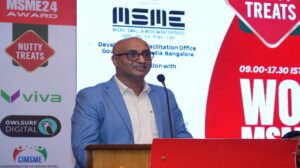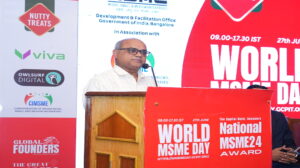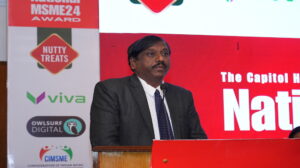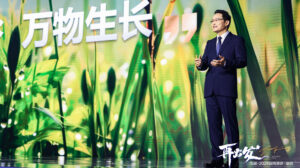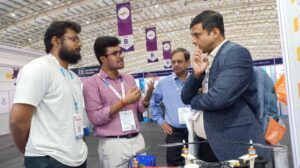Shenzhen, China’s reform pioneer, leads tech revolution
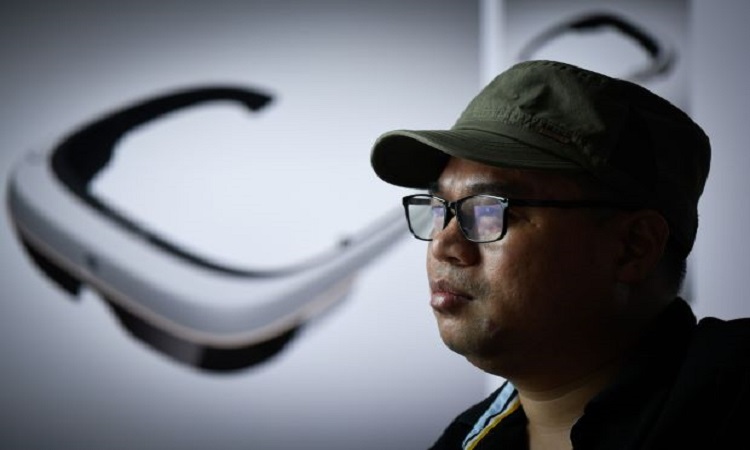
Wu Yebin, CEO of Meegopad, which boasts an annual turnover of US$28mil (RM116.8mil) making products such as miniature PCs. — AFP Relaxnews
The southern city of Shenzhen is the symbol of the transformative reforms launched by China 40 years ago: former fishing villages that morphed into a global manufacturing hub.
Today Shenzhen is again at the heart of a new policy aimed at turning China into a hi-tech innovator and shed its reputation as an assembly line for foreign companies or – worse – an imitator.
Modern skyscrapers housing corporations and ambitious startups tower over the mega-city of 13 million people – among them is Wu Yebin, 35, who runs his own tech firm from his 35th floor office.
His own story mirrors those of countless others who have risen from modest backgrounds following the reforms spearheaded by late paramount leader Deng Xiaoping, which the Communist Party ratified on Dec 18, 1978.
The son of poor farmers, Wu arrived in the city in 2005 and over the years he assembled devices similar to Apple’s iPad or MacBook, joining Shenzhen’s army of people making “shanzhai” – creative knock-offs of foreign electronics affordable for local population.
“Germany, the United States, Japan, South Korea… All developed countries have done this to develop their manufacturing industry,” Wu said. “You have to do that to gain experience.”
While this economic model used to be “very popular, it is no longer viable today,” he said.
He now leads his own electronics firm, MeegoPad, which boasts an annual turnover of US$28mil (RM116.8mil) making products such as miniature PCs.
“We are now very attached to intellectual property and patents,” Wu said.
‘Made in China 2025’
Shenzhen, which lived off fishing and rice paddies, became a testing ground for Deng’s reforms when it was designated as the country’s first Special Economic Zone in 1980.
It grew into a massive manufacturing centre, with factories churning out gadgets, computers and phones for foreign firms, which today include Apple and Samsung.
Today China’s own global corporations, such as telecom company Huawei and Internet giant Tencent, have made Shenzhen their headquarters and the city of tens of thousands of factories is dubbed the “Silicon Valley of Hardware”.
The metropolis is now seeking to reinvent itself as the home of Chinese innovation, in line with Beijing’s “Made in China 2025” plan to dominate key hi-tech industries such as robotics, electric vehicles and artificial intelligence.
“China is becoming a world leader in this field,” Wu said. “Shenzhen is turning into a meeting point for creative engineers from around the world.”
Now talent from abroad is flocking to Shenzhen.
Meng Jie, who is French and in his 30s, left California’s Silicon Valley in 2017 to create Maybe, a company that makes smart speakers that help people learn Mandarin.
“Silicon Valley is still way ahead in artificial intelligence. But you can find the electronic or mechanical component you need three times faster in Shenzhen,” Meng said.
“It’s like going from a road to a motorway,” he said.
Pointing to the skyscrapers outside his office, he said: “People see Silicon Valley as the tech Mecca. They underestimate Shenzhen a lot because they don’t know what’s happening here.”
“This place was just sand and water 20 years ago. In 10 years, Shenzhen will be a very important world city. It will be the capital of innovation,” he said.
US fears
Some of China’s hi-tech ambitions are running into suspicions about its intentions abroad, with the United States and others fearing that they pose security and espionage risks.
Telecommunications equipment giant Huawei’s own global expansion has faced setbacks, with some of its services rejected in certain Western countries and its chief financial officer detained in Canada on a US extradition request over alleged Iran sanctions violations.
But those who have witnessed Shenzhen’s rise marvel at its evolution from hi-tech copycat to creator.
Shenzhen is “really nice fertile ground for innovation,” said Duncan Turner, managing director of HAX, an incubator for startups based in the city.
“The Chinese government sets up clear plans for innovation in particular sectors that they want to invest in,” Turner said.
If a company matches those plans, “you’ve got a nice path for development and onward funding,” he said.
Turner, who moved to Shenzhen in 2009, said the biggest change he has see in the past decade is how young people who used to make fakes are “becoming incredibly inventive, entrepreneurial R&D (research and development) experts that are leading the way of technology in certain areas”.
Improved higher education has created a new generation of engineers, such as Zhang Zhaohui, chief executive of Youibot, which set up his company in HAX’s incubator to make the first autonomous maintenance robot for buses.
“Shenzhen has huge potential,” Zhang, 26, predicted. “The city could very quickly catch up to Silicon Valley.” – AFP Relaxnews


